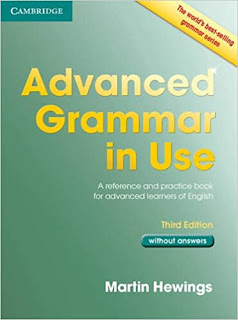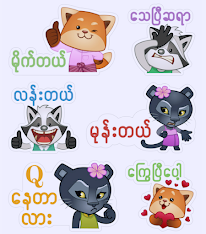လေ့လာမိသောအင်္ဂလိပ်သဒ္ဒါအပိုင်းအစများ (၃၀) (HZH)
လေ့လာမိသောအင်္ဂလိပ်သဒ္ဒါအပိုင်းအစများ (၃၀)
Can vs Could vs Be able to vs Be allowed to
Can, could, be able to ကို ability (ကိုယ်လုပ်နိုင်တဲ့အရာတစ်ခုအကြောင်း ပြောတဲ့အခါ) သုံးလို့ရတယ်။
A. be able to ကို can/could အစားသုံးလို့ရပါတယ်။ ဒါပေမဲ့ သူ့ကို မသုံးရမယ့် အခြေအနေတွေရှိတယ်။
👉 when we talk about something that is happening as we speak:
ကျွန်တော်တို့ပြောသလို ဖြစ်နေတဲ့အရာတွေအကြောင်း ပြောတဲ့အခါ
e.g Watch me, Sister; I can stand on one leg.
❌ I am able to stand
👉 before passive
Passive ရဲ့ရှေ့မှာလည်း သုံးလို့မရဘူး။ ( be able to သုံးတာထက် ပိုကောင်းတယ်)
e.g CDs can now be copied easily.
❌ CDs are now able to be copied
👉 when the meaning 'know how to':
တစ်ခုခုကို ဘယ်လိုလုပ်ရမယ်ဆိုတာ သိတယ်ဆိုတဲ့ အဓိပ္ပါယ်နဲ့ပြောတဲ့အခါ
e.g Can you cook?
❌ Are you able to cook?
B. If we talk about a single achievement, rather than a general ability in the past, we usually use 'be able to' rather than 'could'.
အတိတ်ကာလမှာ တစ်ခုခုလုပ်နိုင်တယ်ဆိုတာကို general ability ဆိုတာထက် specific achievement ကို ပြောရင် could ထက် be able to ကို သုံးရတယ်။
She could play the guitar well and she was able to play "Perfect" sung by Ed Sheeran.
သူ(မ) ဂစ်တာတီးတတ်တယ်၊ (general ability)
Ed Sheeran ဆိုတဲ့ perfect သီချင်းကို ကောင်းကောင်းတီးတတ်တယ်။
He could swim strongly and was able to cross the river easily, even though it was swollen by the heavy rain.
🚩ဒါပေမဲ့ be able to ထက် could က ပိုသဘာဝကျတဲ့ အခြေအနေတွေရှိတယ်။
👉 in negative sentences (အငြင်းဝါကျတွေမှာ)
I tried to get up but I couldn't move. (rather than I wasn't able to move)
👉 with verbs of the senses - e.g. feel, hear, see, smell, taste and with verbs of thinking - e.g. believe, decide, remember, understand
sense နဲ့ဆိုင်တဲ့ verb တွေ၊ thinking နဲ့ဆိုင်တဲ့ verb တွေဆိုရင် could ကို သုံးပေးရတယ်။
I could remember the crash, but nothing after that.
👉 after the phrases the only thing/place/time and after 'all' when it means 'the only thing'.
The only thing/place/time စတဲ့ phrase တွေနဲ့ all နဲ့စပြီး the only thing လို့ အဓိပ္ပါယ်ရတဲ့ phrase တွေမှာ could ကို သုံးရတယ်။
The only thing I could tell you back is that I was unlucky.
All we could see were his feet.
👉 to suggest that something almost didn't happen, particularly with almost, hardly, just, nearly:
almost, hardly, just, nearly စတဲ့ adverb တွေနဲ့ တစ်ခုခုဟာမလုပ်နိုင်/မဖြစ်နိုင်ဖို့ ဖြစ်လုနီးပါးဆိုတာကို ပြောဖို့။
The air was so polluted in the city centre, I could hardly breathe.
Can & Could talking about possibility
To talk about theoretical possibility of something happening we use 'could', not 'can'. However, we use 'can', not 'could' to say that something is possible and actually happens.
သဘောတရားအရဖြစ်နိုင်တယ်ဆိုတာပြောဖို့ could ကို သုံးရတယ်၊ ❌ Can သုံးလို့မရပါဘူး။
တကယ်လက်တွေ့ဖြစ်နိုင်တာကိုပြောဖို့ကိုတော့ can ကို သုံးရပါတယ်။ ❌ Could မသုံးရပါ။
Could 👉 theoretically possible
Can 👉 Actually Possible
It could be expensive to keep a cat.
ကြောင်တစ်ကောင်မွေးရတာ စရိတ်စကများနိုင်တယ် (တကယ်မမွေးရသေး၊ ဖြစ်နိုင်ချေရှိတာပြောတာ)
It can be expensive to keep a cat.
ကြောင်တစ်ကောင်မွေးရတာ စရိတ်စက များတယ်။
✏ We use 'can't', not 'couldn't', to say that something is theoretically and actually impossible.
theoretically ရော၊ actually ပါ မဖြစ်နိုင်ဘူးလို့ပြောဖို့ can't ကို သုံးရပါတယ်၊ couldn't မသုံးရပါ။
There can't be many people in the world who haven't watched television.
✏ We use 'can' to indicate that there is a very real possibility of a future event happening. Using 'could' suggests that something is less likely or that there is some doubt about it.
အနာဂတ်အဖြစ်အပျက်တစ်ခုဟာ ဖြစ်နိုင်ချေများတယ်ဆိုရင် can ကို သုံးရပါတယ်၊ ဖြစ်နိုင်ချေနည်းတယ်ဆိုရင်တော့ could ကို သုံးရပါတယ်။
We can stay with John in New York. (= We will be able to stay)
We could stay with John in New York. (It's possible if he's there)
🚩 Could vs be allowed to : talking about permission
✏ To say that in the past someone had general permission to do something — that is, to do it
at any time — we can use either 'could' or 'was/were allowed to'. However, to talk about
permission for one particular past action, we 'was/were allowed to', but not 'could'.
အတိတ်ကာလမှာ တစ်ခုခုလုပ်ဖို့ခွင့်ရတယ် (လုပ်ခွင့်ရတယ်ဆိုရင်) could နဲ့ was/were allowed to နှစ်ခုလုံး သုံးလို့
ရပါတယ်။ ဒါပေမဲ့ action တစ်ခုကို အလေးပေးပြောရင်တော့ was/were allowed to ကိုပဲသုံးရတယ်၊ ❌ could
သုံးလို့မရပါ။
Anyone could/was allowed to fish in the lake when the council owned it.
ကောင်စီက ကန်ကိုပိုင်တုန်းက အဲ့ကန်မှာ ဘယ်သူမဆိုငါးဖမ်းလို့ရတယ်၊ (ဘယ်သူမဆိုရတယ်;ထူးထူးခြားခြားမဟုတ်ဘူး)
Although he didn't have a ticket, Ken was allowed to (❌could) come in.
သူ့မှာ လက်မှတ်မရှိပေမဲ့ ကမ်က အထဲဝင်လို့ရတယ်။
✏ In negative sentences, we can use either 'couldn't' or 'wasn't/weren't allowed to' to say
that permission was not given in general or particular situations.
အငြင်းဝါကျတွေမှာတော့ ခွင့်မရဘူးဆိုတာကို ပြောဖို့ general ပဲဖြစ်ဖြစ်၊ particular ပဲဖြစ်ဖြစ် couldn't နဲ့
wasn't/weren't allowed to နှစ်ခုလုံးသုံးလို့ရပါတယ်။
We couldn't/weren't allowed to open the presents until Christmas morning.
Apply them.




Comments
Post a Comment